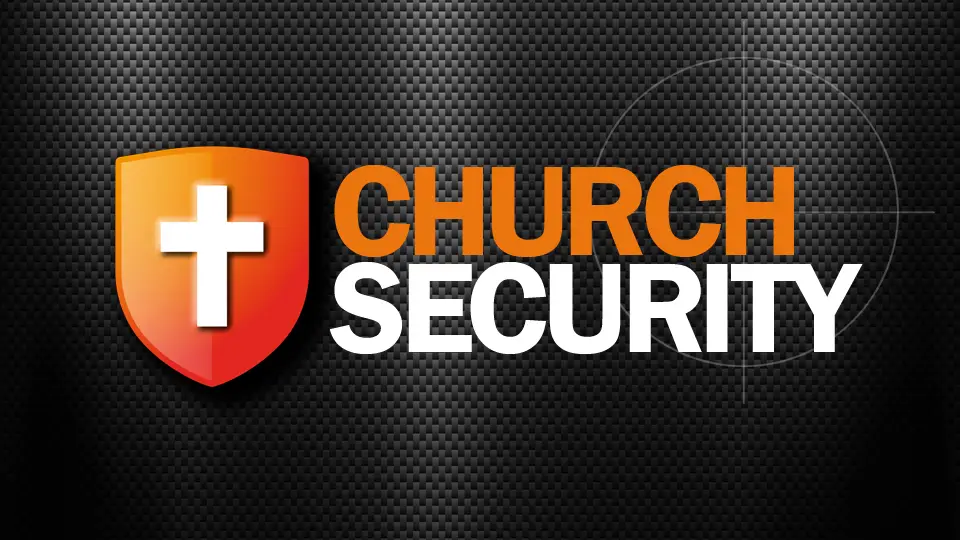Editor’s Note: This article was written by Mike Davis, former Police Chief for the North Little Rock Police Department.
We all have to agree that the safety and security of our houses of worship as we enter these troubling times of 2021 and beyond has to be a priority. We have seen violence in our nation’s capital and other locations and can surely expect this trend to continue. For this reason churches must be diligent in ensuring that those in attendance are safe and feel comfortable as they worship. We must plan for the worst, pray for the best, and still be open and welcome to newcomers as they enter the hospital for sinners.
Over the last few years, many of our churches have formed some type of security team and many more have not. In this article, I would like to speak directly to churches that have few, if any, plans in place to ensure the safety of their congregation. To those reading who have established teams please don’t stop reading.
I need you to do three things: 1) think of other houses of worship around you and consider reaching out to them to help them as they look for ways to make their location safe; 2) be open to helping other denominations and 3) don’t be afraid of taking the lead in organizing area-wide training and information sharing networks.
First Steps
To those considering starting a team, don’t feel overwhelmed. The first step is leadership; they have to see the need. This is critical and not optional. It is also important to understand that a successful safety and security team is not known for their choice of weapons but for their compassion for others. And last, but most importantly I believe that a time of prayer is critical to the decision of forming and maintaining a team.
“So, we want to start a team at my church! We prayed about it, the pastoral team is on board and we have volunteers, so it’s all good, right?!” No, not really.
The most important component of forming a safety and security team is careful consideration of who is a part of the “team.” I would recommend assigning a member of the staff to be a part of selecting potential team members and the team leader. The wrong picks can lead to serious consequences rather quickly.
Choosing Safety Team Members
First and foremost a team member must be a Christ-follower who is already active within the church. I have taught several church safety classes across the state and have heard on more than one occasion things like, “I’m not really a people person but I am a good shot!” or “ People irritate me but I can promise you no one will get hurt on my watch!” or “I’d be there every week if I’m allowed on the team.” These three should be quickly told “no thanks.”
Team members have to be “people lovers.” They must understand that new people will be coming to the doors of the church who have reached their “limit in life” so to speak. My hope is that many will realize that they can no longer do it on their own in 2021 and see the only hope they have is through a relationship with Jesus Christ. Members of safety and security teams have to be able to recognize these people and respond, making them feel welcome and if they are having troubles, ensure they are helped by someone on the team or staff if required.
Team members must also commit to conducting themselves properly at all times because they represent the church no matter where they may be – including their presence on social media. Way too many “good Christian people” are being called out for their outspokenness on social media sites such as Facebook. If an incident occurs during an event at church that requires the involvement of a safety team you can be assured that within minutes social media sites of team members will be examined.
Team members must be flexible now more than ever. They can no longer say “we always did it this way or this is always my spot, my position.” With COVID the way we always did it has changed. The roles of ushers, door greeters, and safety team members have changed and many of the regulars are no longer attending.
Team members must examine their church and ask “what is our most likely scenario?” We know that medical events and severe weather threats rank in the top three and for these reasons we must train and plan in these areas the most and ensure that we know basic first aid to include CPR, AED usage if present, and have taken Stop the Bleed training.
Yes, situations may arise that require other action, but by being diligent outside of our campuses we can most likely spot any potential trouble before it comes inside. By networking with area houses of worship we can also stay up to date on any potential issues and be prepared for trouble.
Build Relationships
Building relationships with local law enforcement is extremely important. They are always willing to help with any issues and would much rather be contacted PRIOR to a problem than respond to an incident that has already occurred. Law enforcement also may be able to help safety teams receive additional training in other areas.
Challenges await us this year, but by working as teams in all facets of our churches we can safely worship and encourage new believers as we move forward into the years ahead. A successful safety and security team includes greeters, parking lot attendants, ushers, janitors, and encouragers who for the most part go unnoticed but are ever ready to help whenever they are needed.

